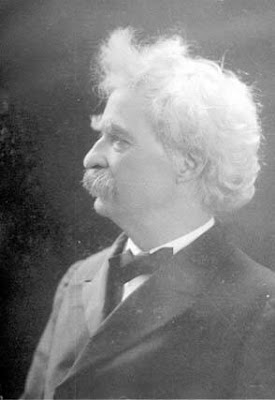This is part 2 of a 2 part series. You may find the full series here:
- Defining race and ethnicity in South Africa.
- Defining race and ethnicity in South Africa, part 2.
Since my previous post,
Defining race and ethnicity in South Africa, there's been a bull in the China shop. You can tell by the large amount of bull shit that has since gathered. Please consult the comment section of that post to get a firm idea of how we got here. This is a reply from
Sentletse, who claims that
We are not all Africans black people are!, to my post. I'll quote from him in bold and give my comments in plain text.
Neanderthals existed in Europe. If you say Homo Sapiens drove them to extinction, then you agree with me that it was Homo Sapiens that migrated from Africa, not Homo Sapiens Sapiens. Therefore the Out-Of-Africa theory is rendered invalid as it is premised on the view that it was Homo Sapiens Sapiens who migrated.I'll see your
multiregional model of the origin of modern humans and I'll raise you
Mitochondrial Eve.
I don’t contest the notion that we all evolved from a common ancestor Homo Sapiens. My argument is that the evolution of Homo Sapiens to Homo Sapiens Sapiens and ultimately modern human beings didn’t occur in Africa. Therefore you can say that the origin of white people was in Africa. No white person evolved from Homo Sapiens in Africa. This all occurred outside the continent. Don’t confuse the origin of Homo Sapiens and the origin of modern human beings.If Homo sapiens sapiens did not evolve in Africa, then Africans (of any ethnic or racial description) must have migrated back into Africa from somewhere else. Regardless, early human origins have no bearing on who may call themselves African. Suggest that the earliest homo sapiens remains are found in China. This would only suggest that Africans may have migrated here from China, but it is not necessarily so as most hominids of the time were too busy trying not to be eaten by sabre-tooth tigers to invent writing and leave detailed records of their family tree or even a fossil record of themselves. The bones of their oldest known grandfather doesn't make them Chinese, they're still African for the same reason that any other African is African: they were born in Africa.
The Lemba people originate from Judea. They’re not African. They may have dark skins, but they’re not African. Indians also have dark skins and they too are not African. Hear that, Lemba dudes? Being Zimbabwean, speaking a Bantu language and being black are not enough to make you guys Africans. Sorry. That Judean holiday you took 2 500 years ago is paying dearly now.
Hear that, Lemba dudes? Being Zimbabwean, speaking a Bantu language and being black are not enough to make you guys Africans. Sorry. That Judean holiday you took 2 500 years ago is paying dearly now.If they are Homo sapiens with the same common ancestor as modern-day Africans, how did they get to Judea?
Being black, being on the African continent for 2 500 years and speaking a Bantu language are not sufficient to be classified as African by your standards?
Being Homo sapiens sapiens, that did supposedly not originate in Africa, but migrated to the African continent, only counts for some Africans to be classified as African if they have black skins and speak a Bantu language, but not if they took a scenic route by means of Judea?
But being born in the Caribbean, say in Jamaica, and being a black nationalist that adheres to the Roman Catholic faith like
Marcus Garvey did, leaving most of your writing in English, and dying in London makes one more African?
OOA theory is widely accepted. But the presence of Homo Sapiens fossils in China certainly invalidates this theory. See this table on the link which confirms that Homo Sapies fossils were found in China.That link merely shows a list of fossils found in China. It does not imply, nor tries to imply, that the fossils found there are the oldest known examples of such fossils. It is only a table that categorises fossils found in China according to species in the genus Homo.
The
oldest known human fossil remains are from Ethiopia. I hope they weren't buried by a Rabbi, not even a black one, because that would make them un-African in your view?
The only flaw of the multi-regional hypotheses as widely recorded is that it is based on the assumption that evolution elsewhere was from Neanderthals and Homo Erectus. Genetic evidence disputes that. But we can update that hypotheses now to say that such evolution did occur outside Africa as well but that being evolution from Homo Sapiens not Homo Erectus.There is no assumption that Homo sapiens sapiens evolved from Neanderthals. It is widely considered that Neanderthals died out, largely thanks to the appearance of Homo sapiens sapiens. For genetic evidence, see
Mitochondrial Eve.
Homo sapiens and homo sapiens sapiens are effectively synonyms as these are the last remaining species of the genus
Homo. It is a misnomer to suggest that the various species of the genus evolved from each other, as they are thought to be cousins stemming from the same common ancestor. There are also various speculations as to who the common ancestor is, but you'll find that Homo erectus is thought to be the common ancestor of Homo sapiens sapiens,
Homo neanderthalensis and
Homo heidelbergensis. These latter species are not considered to have evolved from one another (except perhaps neanderthalensis from heidelbergensis, which makes heidelbergensis the common ancestor of neanderthalensis and sapiens), they are all considered to have a common ancestor in
Homo erectus.
By the way, the earliest known fossils of most of those, including Homo erectus, are all found in Africa. Like I said in my reply in the comments of my previous post, how far back is far enough? You'd like to trace African ancestry way back, but not far enough to include Homo erectus, which is thought to be the common ancestor of all Homo sapiens, and not recent enough to include Homo beings who went to Judea, learnt a thing or two from the Jews, learn to fear the God of Abraham, still speak a Bantu language and are as black as night, as Africans?
Whether the term “Africa” was invented by Romans is neither here nor there. We have the term, which is in specific reference to this continent.Agreed. The term African refers to that which is of or related to Africa. Nothing more, nothing less. Which means it is not descriptive of a particular race, nationality or ethnicity.
That Mbeki referred to the Berber people as African doesn’t make that the gospel truth. He was wrong. The Berbers like the North African Arabs do not originate from Africa. They’re said to have reached North Africa around 2000 BC or so.
There was a study was done in respect of the origins of the Berber people. Here’s an excerpt:
"Looking at the relevant mutations in and around the lactase gene in human populations, we can gain insight into the origin(s) and spread of dairying. We genotyped the putatively causal allele for lactose tolerance (–13910T) and constructed haplotypes from several polymorphisms in and around the lactase gene (LCT) in three North African Berber populations and compared our results with previously published data. We found that the frequency of the –13910T allele predicts the frequency of lactose tolerance in several Eurasian and North African Berber populations but not in most sub-Saharan African populations. Our analyses suggest that contemporary Berber populations possess the genetic signature of a past migration of pastoralists from the Middle East and that they share a dairying origin with Europeans and Asians, but not with sub-Saharan Africans."The fact that
Berbers share genetic material with Europeans (who knows of which race) and Asians (who knows of which race) does not cast any light on their origins. It merely suggests that Berbers did not share their genetic material with other Africans. For all we know from your excerpt above, and the out-of-Africa theory, the Berbers in North Africa were the origins of the genetic material and the ancestors of the Europeans and Asians of similar milk loving ethnic groups came from Africa. Which suggests, once again, like you have admitted, being black and being African are not the same thing.
The African Diaspora is relevant. Here we’re not trying to prove who practiced slavery before who, but to demonstrate that the term “African” has always been used exclusively in reference to black people for the greater part of our history. Marcus Garvey is African purely because he is black like a Lemba. Howewer, unlike most Lemba, Marcus wasn't born in Africa, did not speak a Bantu language as far as I know and died in London. Being black is not enough to make Lemba people African, but it's enough to make Marcus Garvey more African than Lemba people or some white devil who dares call himself African.
Marcus Garvey is African purely because he is black like a Lemba. Howewer, unlike most Lemba, Marcus wasn't born in Africa, did not speak a Bantu language as far as I know and died in London. Being black is not enough to make Lemba people African, but it's enough to make Marcus Garvey more African than Lemba people or some white devil who dares call himself African.With the notable exception of the
Lemba people, who are too black, who speak a Bantu language, but because they've only been African for 2 500 years and weren't shipped off to work on plantations overseas, can't be African.
And the notable exception of the Berbers, who are excluded because they like milk more than sub-Saharan Africans, they are not black enough, they have cousins in Europe and Asia and they don't speak Bantu-languages.
And the notable ignorance of the etymology of the word Africa and the native African Semitic people to whom it first applied.
That some lone white guy in 1707 called himself “African” doesn’t mean he is. Afrikaners are descendants of the Dutch, French and Germans. I’m not sure what makes them African there. That they created their own fanagalo doesn’t make their origins South African. You have a stronger argument to want Afrikaans at least be described as an African language than want Afrikaners described as African.The fact that some lone white guy called himself African before some lone Zulus decided to call themselves Zulu, speaks a fanagalo that originated in Africa just like Zulu did, did not want to go somewhere else just like Zulus don't want to go anywhere else, managed to convince all his pale-faced, pink bottomed friends to speak the same fanagalo and call themselves after their native continent contradicts your statement that nobody who wasn't black (except the Berbers, who aren't African in your view) wanted to be called African before 1994.
I'm not sure what makes anyone African in your view, because being black doesn't cut it, speaking a Bantu-language doesn't cut it, being lactose tolerant doesn't cut it, being born in Africa doesn't cut it, sharing genetic material with milk lovers in the Middle East, Asia or Europe doesn't cut it, being in Africa since Paleolithic times doesn't cut it, but being born in Jamaica and starting a nationalist movement overseas does?








